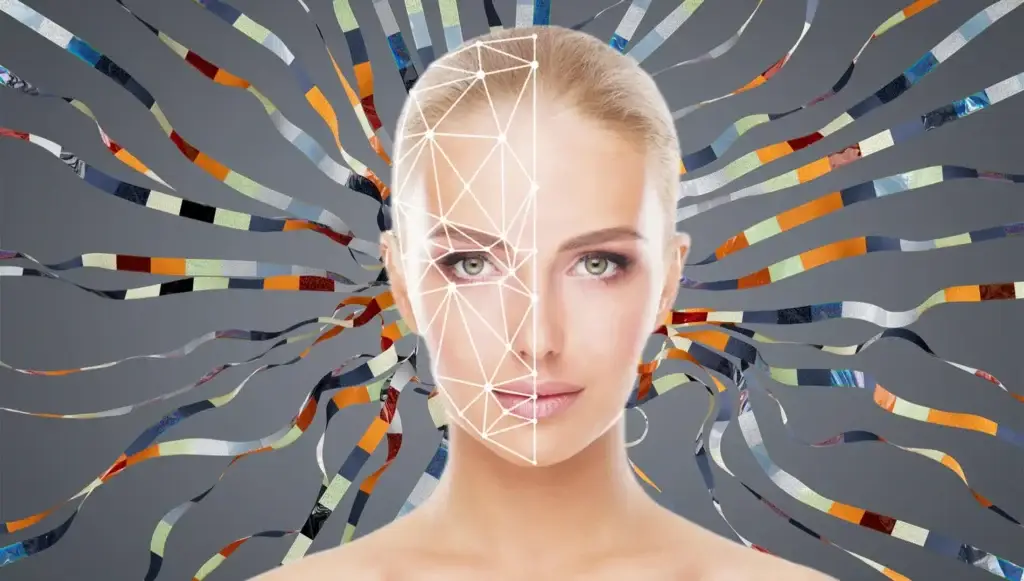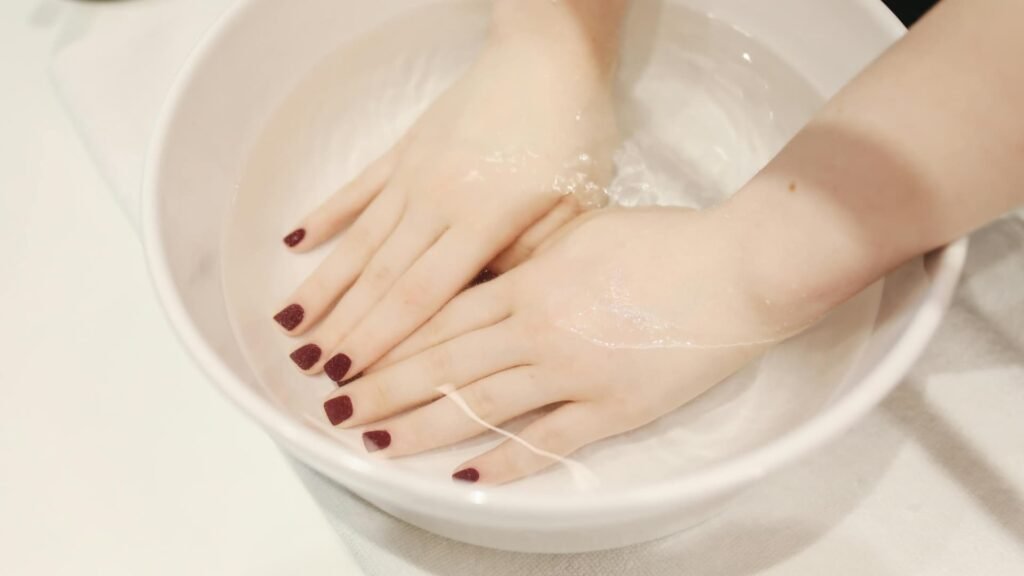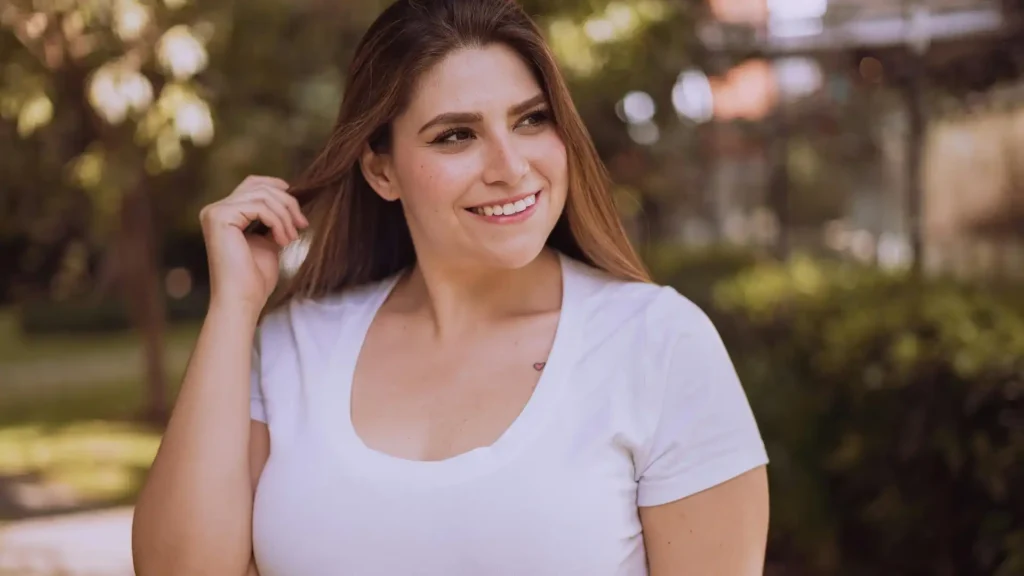The beauty is changing its definition and the beauty industry has undergone a remarkable transformation in recent years, largely due to advancements in artificial intelligence (AI). What was once a field dominated by manual techniques, skincare routines, and cosmetic products is now leveraging cutting-edge technology to reshaping beauty standards, enhance personal care, and create personalized experiences. From virtual makeup try-ons to AI-powered skincare recommendations, the convergence of beauty and AI is nothing short of revolutionary.
But how exactly can AI help you look beautiful? Let’s explore.
Personalized Skincare Recommendations
One of the most significant ways AI is changing the beauty landscape is by providing highly personalized skincare recommendations. AI revolutionizes the beauty industry by redefining skin care practices, addressing diverse skin concerns, and elevating skin health, taking the consumer experience and retail opportunities to the next level.
Traditionally, choosing the right skincare products involved trial and error, often based on general advice or recommendations from beauty influencers. However, AI is now revolutionizing this process by utilizing advanced algorithms and machine learning to offer solutions tailored to an individual’s unique skin needs.
By analyzing data from skin assessments, AI can recommend products tailored to an individual’s specific needs. For example, if the AI detects that a user has dry skin with signs of early aging, it may suggest products rich in hyaluronic acid and antioxidants.
AI-powered skincare tools analyze various factors such as skin type (e.g., oily, dry, combination), complexion, age, and specific skin concerns like acne, pigmentation, wrinkles, and sensitivity. By inputting a few data points—such as your skin’s response to different environmental conditions, products you’ve previously used, or even the climate in your region—AI can predict the most effective skincare regimen for you.
This approach significantly reduces the guesswork and helps you avoid ineffective products that might not suit your skin, saving both time and money.
Expert Opinion: Dr. Mona Gohara | Dr. Mona Gohara, a renowned dermatologist and associate clinical professor at Yale University, emphasizes the importance of AI in offering personalized skincare. “AI has the potential to revolutionize the skincare industry by allowing for highly customized recommendations. Rather than relying on a one-size-fits-all approach, AI can analyze vast amounts of data—from skin scans to lifestyle habits—to identify your skin’s specific needs,” she says. “For example, if a person’s skin tends to be more sensitive during certain seasons, AI can recommend products that provide gentle hydration during those months, or suggest antioxidants when skin is exposed to higher levels of UV radiation.” |
Furthermore, AI-powered devices and apps can learn from ongoing usage and continuously adapt recommendations as your skin changes over time.
This dynamic feedback loop ensures that skincare regimens stay relevant and effective, which is particularly important for individuals with changing skin conditions such as hormonal acne or signs of aging. These suggestions can include specific products, treatments, and routines based on real-time skin data.
Expert Opinion: Dr. David Lortscher | Dr. David Lortscher, a board-certified dermatologist and CEO of Curology, which offers personalized skincare through telemedicine, highlights how AI enables real-time adaptations. “Personalization is key to effective skincare, and AI allows us to adjust a person’s treatment plan based on continuous data collection. Whether it’s tracking the effects of a new moisturizer or assessing the results of a prescription treatment, AI helps refine the regimen to maximize results,” says Dr. Lortscher. “It’s like having a dermatologist available 24/7 to offer insights and make changes to your routine based on your skin’s evolving needs.” |
AI in Dermatology and Skin Diagnostics
In addition to product recommendations, AI is making strides in skin diagnostics. Devices like DermaScan or Skinia use AI algorithms to analyze skin images taken by the user’s smartphone camera.
These devices can detect fine lines, wrinkles, dark spots, and even early signs of skin conditions like rosacea or melasma. The AI then provides actionable insights and suggests targeted treatments or products to address these concerns.
AI systems based on a deep learning algorithm use plentiful public skin lesion image datasets to distinguish between benign and malignant skin cancers. These datasets contain massive original images in diverse modalities, such as dermoscopy, clinical photographs or histopathological images
Expert Opinion: Dr. Doris Day | Dr. Doris Day, a prominent dermatologist and author of “Beyond Beautiful”, explains that AI-driven skin diagnostics can help identify issues before they become visible to the naked eye. “AI tools can detect underlying skin problems that are often invisible, such as subtle signs of dehydration, inflammation, or UV damage,” she says. “This early detection allows for intervention at a stage when skincare products can still make a meaningful difference, preventing more serious conditions from developing later on.” |
AI for Holistic Skin Care
Another exciting aspect of AI in skincare is its ability to incorporate holistic factors into personalized recommendations. AI powered skin analyzer can examine factors like hydration, elasticity, pore size and pigmentation. After analyzing all of the factors, it can deliver a holistic skincare recommendation available nowhere.
Some AI-driven platforms not only analyze your skin but also take into account lifestyle factors such as diet, sleep patterns, stress levels, and even your fitness routine.
This holistic approach allows AI to provide truly customized advice—not just on products but also on changes to daily habits that can have a profound effect on your skin beauty.
Expert Opinion: Dr. Rachel Nazarian | Dr. Rachel Nazarian, a board-certified dermatologist at The Mount Sinai Hospital in New York, believes this broader view is essential for addressing skin concerns comprehensively. “AI doesn’t just look at your skin; it takes a 360-degree view of your health and habits. For example, stress is a huge contributor to acne, and AI can factor in your stress levels, sleep quality, and diet when making recommendations. This is a much more complete approach to skincare,” she says. “By connecting all these dots, AI has the potential to offer users a roadmap for overall skin health—not just superficial fixes.” |
AI-Driven Virtual Makeup Try-Ons
Virtual makeup try-ons are one of the most popular applications of AI in the beauty industry. Thanks to AI-powered tools, users can now try on makeup products digitally before purchasing. With this innovation, customers use the front-facing camera on their mobile phone to digitally try on different shades of lipstick in a live video of themselves or on a selfie.
These technologies use facial recognition and augmented reality (AR) to map out the user’s face, allowing them to test lipstick shades, eyeshadows, foundations, and more virtually.
Brands like L’Oréal, Estée Lauder, and Maybelline have implemented AR technology to offer customers an immersive shopping experience. The AI algorithms learn your facial features and preferences over time, providing increasingly accurate makeup simulations.
Parham Aarabi, CEO of ModiFace (which was acquired by L’Oréal in 2018), said: “We are delighted to team up with Amazon to provide its customers an Augmented Reality makeup try-on that offers highly realistic results and makes online shopping even more comfortable. Thanks to a precise color rendering, enabled by our unique AI-powered technology, shoppers can easily try-on thousands of lipsticks available on Amazon and purchase the shades that fit them best.”
Expert Opinion: Aiisha Nadeem | Aiisha Nadeem, a digital beauty strategist, highlights the potential of virtual try-ons: “What AI brings to the table is not just convenience but also confidence. Consumers can experiment with different looks in a risk-free environment, which ultimately empowers them to make informed purchasing decisions.” |
AI for Hairstyling and Hair Care
AI isn’t just transforming skincare and makeup—it’s also revolutionizing the way we approach haircare. While hair has always been an essential part of personal grooming, the process of choosing the right products, treatments, and styles can often be overwhelming due to the vast number of options available.
AI systems can optimize salon appointment scheduling, minimizing wait times and ensuring that stylists are efficiently utilized. AI can keep track of client preferences and previous treatments, allowing for a more personalized and seamless salon experience.
AI technology isn’t just restricted to product recommendations; it also extends to hairstyling. AI can assist in virtual consultations, using facial recognition and hair analysis to suggest the best haircuts and styles for an individual’s face shape, skin tone and hair texture.
Virtual hairstyling tools powered by AI enable users to try out various hairstyles—ranging from new haircuts to different hair colors—without ever having to step foot into a salon.
This has become a game-changer for people who are looking to experiment with their look, but may be hesitant to commit to a major change without first seeing how it will look. Apps like YouCam Makeup and ModiFace use augmented reality (AR) and AI to let users see how different styles—whether it’s a bold new haircut, a trendy hair color, or a completely different texture—would look on their face before making a decision.
Personalized Haircare Routines Powered by AI
Identifying the right care for your hair is too much difficult. Different people have different hair types amd textures. AI-powered systems are changing the game when it comes to personalized beauty consultations. AI is stepping in to simplify the process by using algorithms to analyze your hair’s condition and offering personalized product recommendations.
These systems can take into account several factors, including –
- scalp condition (dry, oily, or sensitive)
- hair texture (straight, wavy, curly)
- hair porosity (how well hair absorbs moisture)
- external influences like pollution or the local climate.
For instance, AI-powered platforms like Function of Beauty use data from hair tests, along with user input about hair goals, to create customized haircare products designed to address individual needs. By assessing real-time feedback, AI can continuously improve the recommendations, adapting to the changes in a person’s hair as it responds to the treatments. Over time, this ensures a more personalized and effective approach to maintaining healthy hair.
Expert Opinion: Dr. Susan T. Miller | Dr. Susan T. Miller, a trichologist and hair expert, emphasizes that AI’s ability to personalize haircare regimens is a significant step forward in the industry. “AI has the potential to optimize haircare by not only taking into account an individual’s hair health and texture but also their habits and lifestyle,” she explains. “For example, AI can suggest different products based on factors like how frequently someone washes their hair, the types of products they use, or even how much sun exposure they get.” She also highlights that AI can help guide users toward products that improve hair strength, shine, and growth by recommending specific ingredients like keratin, biotin, or natural oils tailored to individual needs. |
Virtual Hairstyling: Trying Before You Buy
One of the most exciting applications of AI in hairstyling is the ability to virtually “try on” new looks before committing to a real-life haircut or color treatment. It’s a fantastic feature.
You can try on different hairstyles, from beachy waves, pixie cuts to sleek bobs, before spending any dime or losing beauty. Virtual hairstyling apps, such as YouCam Makeup, ModiFace, and Perfect365, allow users to upload a photo or live video feed and test out different hairstyles, colors, and textures using augmented reality (AR) technology. These apps use AI to create realistic simulations of how different styles will look based on a person’s face shape and hairline.
Before committing to any haircut, anyone can try a bold new hair color, experiment with a dramatic change in length, or even visualize how curls would look on straight hair, these AI tools offer a safe, virtual playground.
These platforms are user-friendly, as they can save their “looks” and compare them side-by-side, helping them make a more informed decision before taking the plunge in the salon. It’s not just about haircuts—these apps can simulate anything from balayage highlights to vibrant, pastel hair colors, and even more complex styles like braids, updos, and layers.
Expert Opinion: Christine Thompson | Christine Thompson, a celebrity hairstylist and color expert, sees virtual hairstyling tools as a valuable tool for both professionals and consumers. “These apps allow people to explore different hairstyles with no risk, which can help them get a clearer idea of what they really want,” she says. “It’s particularly helpful for clients who are unsure about a major haircut or color change—being able to see it on their own face before committing takes the guesswork out of the decision.” |
Thompson also notes that these tools are starting to influence not only consumer behavior but also the way hairstylists approach consultations. “Stylists can use these apps to help guide clients during the consultation process,” she explains. “Clients can show their stylist a virtual version of what they’re thinking, which leads to more effective communication and more satisfying results.”
AI for Hair Health: Scalp and Hair Diagnostics
Tools like RevAir and HairClone use AI to assess scalp condition and they have a recommendation system for the treatments to improve hair health. These devices identify the severity of the scalp condition and suggests a treatment plan that includes medicated shampoos and scalp treatments including more advanced therapies like micro-needling for hair regeneration.
AI-powered diagnostic tools are also used to track progress over time. For example, some systems can monitor the effectiveness of hair restoration treatments or track changes in hair density, strength, and elasticity.
By continuously collecting data, AI tools can provide actionable insights and suggest adjustments to your haircare regimen as your hair changes.
Expert Opinion: Dr. David Lortscher | Dr. David Lortscher, CEO of Curology and a board-certified dermatologist, sees AI’s role in hair diagnostics as a game-changer. “For many people, understanding what’s going on with their hair and scalp is the first step toward solving hair-related issues,” he says. “AI allows for a much deeper level of insight into your hair health, enabling a more proactive approach to haircare. Whether you’re dealing with thinning hair, breakage, or scalp irritation, AI can recommend specific treatments that can address the root cause of the issue.” |
AI in Beauty Content Creation
AI now beautifies the appearance of content creators and influencers. It enhances workflows to create content smoothly. AI-powered software can help users create flawless photos and videos by automatically correcting imperfections like blemishes, adjusting lighting, and smoothing skin tones.
For example, tools like Adobe Photoshop’s “Content-Aware Fill” and apps like Facetune use AI to enhance beauty photos, allowing users to remove unwanted blemishes, smooth skin texture, or even enhance facial features while maintaining a natural look.
Expert Opinion: Ava Faulkner | Ava Faulkner, a beauty influencer and digital content creator, shares, “AI has made the editing process faster and more efficient. It’s a tool that allows me to enhance my content while still staying true to my personal style. However, I always try to balance AI enhancements with authenticity.” |
AI for Anti-Aging and Beauty Treatments
AI is also finding its place in the realm of anti-aging. Skin diagnostics powered by AI can detect early signs of aging, such as fine lines, wrinkles, and sun damage. An artificial intelligence based approach has been proven to have significant results in medical dermatology, plastic surgery, and antiaging procedures in recent years, with applications ranging from skin cancer screening to 3D face reconstructions, the prediction of biological age and perceived age.
AI technologies can then recommend treatments or products to prevent or minimize these concerns, whether it’s via skincare products, cosmetic procedures, or lifestyle changes.
Furthermore, AI is used in dermatology to track skin changes over time, allowing for proactive treatment plans. Devices like the Observ skin scanner use AI to detect the underlying causes of skin aging, which can inform personalized skincare regimens.
Expert Opinion: Dr. Doris Day | Dr. Doris Day, a board-certified dermatologist and author of “Beyond Beautiful,” states, “AI-powered devices can detect signs of aging that may not be visible to the naked eye, giving us the ability to intervene early. The power of AI is in its precision, enabling us to create highly customized anti-aging treatments.” |
AI-Powered Beauty Devices
Several beauty devices are now available on the market that use AI to optimize their effectiveness. Many big players are taking part in this initiative.
For example, the Foreo UFO is a smart facial device that uses AI to assess your skin’s needs and select the most appropriate treatment. Perso, a 6.5 inch beauty tech device, developed by L’Oréal, delivers personalized on-the-spot skincare and cosmetic formulas. Similarly, NuFace uses microcurrent technology to lift and tone the skin, and its app tracks progress over time.
These devices perform complex tasks, like –
- Providing personal skin analysis
- Analyzing the environment
- Adapting to personal preferences
- Making a custom formulation and dispensing
Expert Opinion: Liz Rees | Beauty tech expert Liz Rees highlights, “AI-powered beauty devices not only provide convenience but also ensure that you’re getting the most out of your beauty routine. They adjust based on real-time data, which helps to create more effective results.” |
Enhancing Beauty Standards with Ethical AI
While AI in beauty offers many exciting possibilities, there’s a growing concern about its potential to influence beauty standards and perceptions of attractiveness. AI tools have been criticized for sometimes perpetuating unrealistic beauty ideals, such as flawless skin or perfectly symmetrical faces.
AI-driven beauty filters and virtual makeup try-ons may promote unrealistic beauty standards, creating unattainable consumer expectations. This can contribute to feelings of inadequacy and negatively impact self-esteem.
As a result, ethical considerations are becoming an essential part of AI’s role in the beauty industry. Governments and regulatory bodies should play a critical role in establishing legal frameworks than govern the ethical use of AI in the beauty industry.
Expert Opinion: Dr. Carissa Véliz | Dr. Carissa Véliz, a philosopher and ethicist at the University of Oxford, argues that “AI can be a force for good if used responsibly. We must ensure that beauty standards promoted by AI-driven tools are inclusive and celebrate diversity. AI should empower individuals to enhance their natural beauty rather than conform to a narrow, idealized standard.” |
Conclusion
AI is undeniably transforming the beauty industry in profound ways. From personalized skincare routines and virtual makeup try-ons to smart beauty devices and ethical considerations, AI is enabling consumers to enhance their appearance and optimize their beauty routines like never before. As the technology continues to evolve, the future of beauty promises even more innovative and personalized experiences, ensuring that everyone can look and feel their best.
References:
- Gohara, M. (2023). The Future of Personalized Skincare with AI. Dermatology Today.
- Nadeem, A. (2024). AI in Beauty: The Future of Makeup and Virtual Try-Ons. Beauty Tech Journal.
- Faulkner, A. (2024). AI Tools for Beauty Influencers: Enhancing Content Creation. Beauty and Style Digital Magazine.
- Day, D. (2023). AI and Anti-Aging Treatments: A New Era of Skin Health. The Dermatologist’s Review.
- Véliz, C. (2023). Ethical AI in Beauty: Balancing Innovation with Inclusivity. Oxford Ethics Review.




